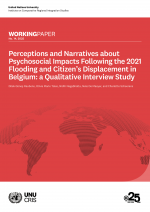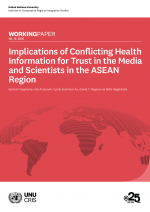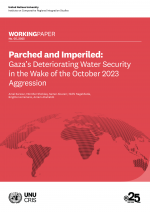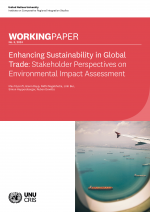Unpacking Climate Change and Health Nexus in Bangladesh: 10 Points on How the Country Can Prepare to Implement and Support the WHO’s Global Action Plan on Climate Change and Health (2025)
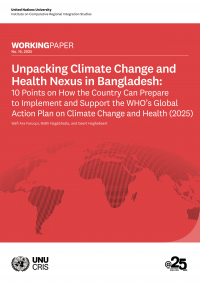
This working paper offers a timely and in-depth exploration of the climate-health nexus, specifically focusing on the context of Bangladesh as this country faces some of the world’s highest global climate risks. At its core, the paper engages with the WHO’s Global Action Plan on Climate Change and Health (2025), positioning it as both a technical framework and a guiding reference point for shaping coherent, cross-scale health-climate policy responses.
A significant strength of the WHO plan lies in its systems-thinking approach. It extends beyond conventional public health challenges to include critical yet often overlooked dimensions such as mental health, gender equity, displacement, and the need for sustainable health financing. These thematic pillars are particularly relevant for low- and middle-income countries like Bangladesh, where climate change intersects with existing socioeconomic vulnerabilities and places additional strain on already stretched health systems.
This paper emphasizes the importance of multi-level governance in translating global commitments into effective local action. International frameworks such as the WHO’s Action Plan serve as strategic compasses for national governments and catalyze alignment and accountability across multiple tiers of governance—from ministries and local authorities to frontline service providers, and civil society actors.
Bangladesh, for instance, has demonstrated commendable policy intent through the development of the National Adaptation Plan (NAP), the Health National Adaptation Plan (HNAP), and the Mujib Climate Prosperity Plan (MCPP). However, these efforts remain fragmented without the systemic coordination mechanisms needed to operationalize them at scale. Strengthening vertical and horizontal governance integration can significantly enhance the impact and coherence of adaptation responses. Despite this policy momentum, the paper identifies persistent implementation challenges, including limited inter-ministerial coordination, weak research-to-policy translation, and the lack of real-time data systems to inform evidence-based action. By contextualizing the WHO framework within the national landscape of Bangladesh, this paper provides practical entry points for integrating climate resilience into health systems, providing lessons that are also applicable to similar vulnerable countries.

